Take a Decision?
Last Blog | Index | Next Blog
Fifty | Garden | Ninety | Twenty-Five
24 September 2022
Iwona and I often talk about language my Deutsch tends to be peppered with English grammar and sometimes Norsk words while her English has some idiosyncrasies from her native Polish and everyday Deutsch. One she has not been able to drop is the she "takes a decision" rather than "makes a decision". I have teased her about this but this week was aghast to discover written in no less a publication than The Economist, "Mr Putin was taking decisions". Okay, so also worthy of note is that the British use "Mr" rather than "Mr.", but I've become accustomed to that quirk. But there it was, Iwona's English I'd been correcting written by actual Englishmen!
While in Spain I had a similar egg on my face experience talking to two Germans in León. They explained that a couple fellow peregrinos would be joining us at the bar but were then leaving for a pub crawl at "half eight". The Deutsch say "halb acht" and mean 7:30, and I had never heard this in English so I asserted they must not be native speakers. I continued that in English we only say "half past eight" to mean 8:30, so they must not be native speakers. Then the two English chaps showed up and I realized that I was the colonial non-native speaker. We say "quarter til eight" to mean 7:45 and "quarter past eight" to mean 8:15, but English doesn't use "half til eight" to mean 7:30. It's always half past the prior hour. And the parsimonious English have apparently dropped the "past" from the phrase as unnecessary. "Half eight" is clear to them as 8:30.
Having now encountered "take a decision" from a truly non-native speaker, I endeavored (not endeavouring, mind you) to find the if this was a common amongst the British. Googling I found articles on how "take a decision" means quickly without thinking while "make a decision" means after dutiful consideration; how "take a decision" is something the government does whereas average joes "make a decision"; how it's the other European languages influence on the British because in French, German, Spanish, etc. they use their equivalents of "take"; how the British always said "take a decision" while the Americans introduced "make a decision"; even a New York Times article from the 80's about how the British trying to foist "take a decision" up on us. The truth lies somewhere else.
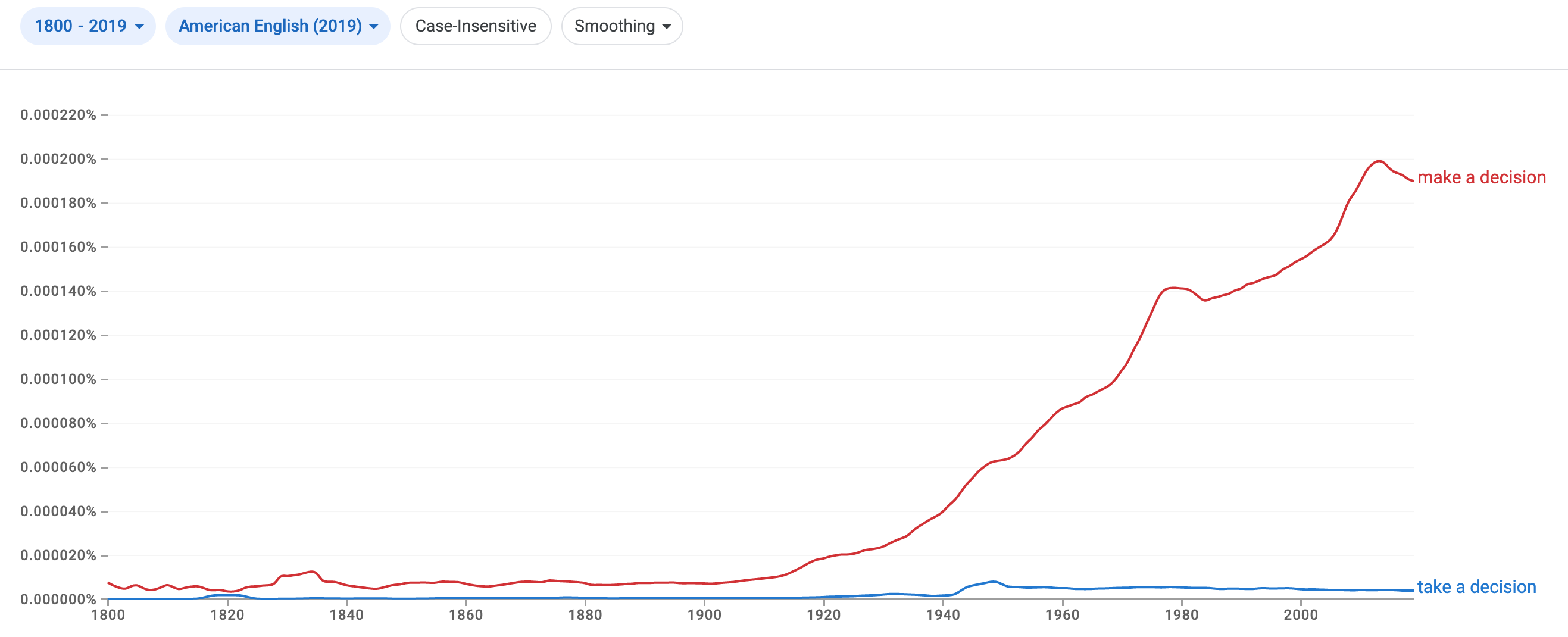
Usage of the two phrases by Americans since 1800
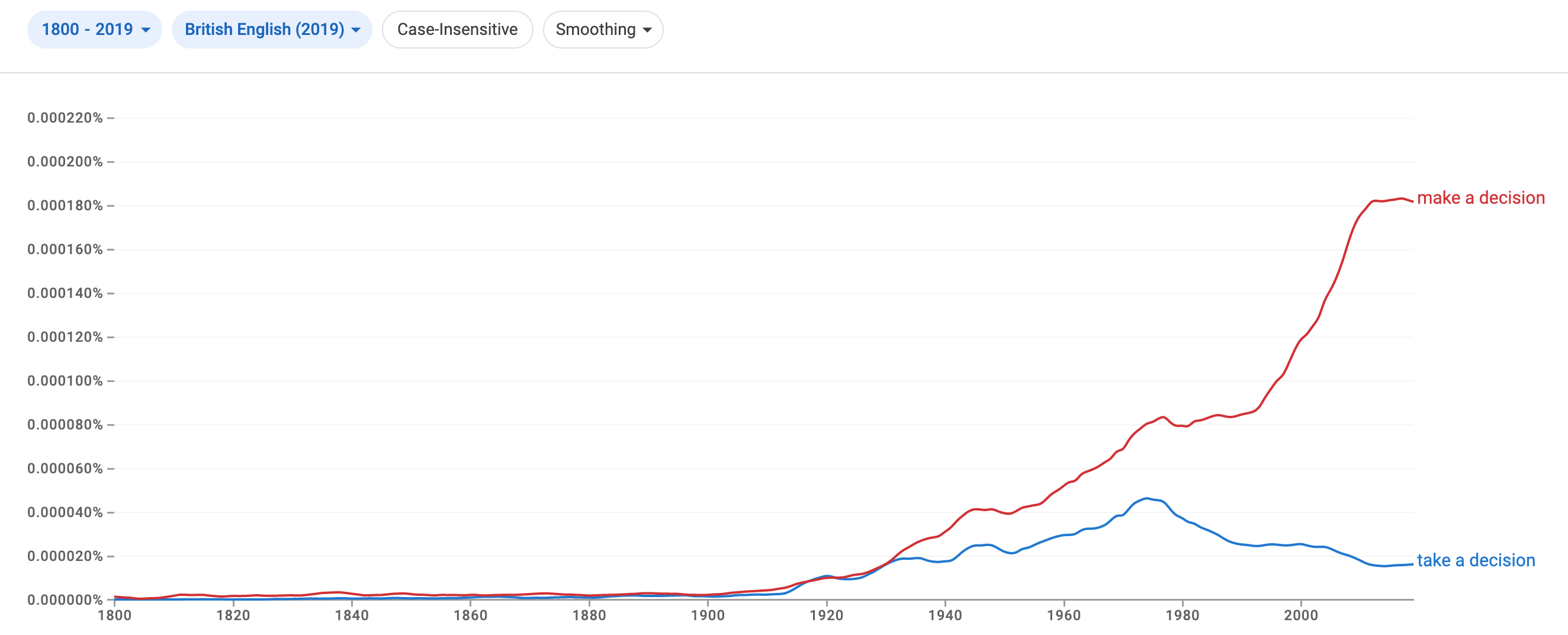
Usage of the two phrases by British since 1800
Comparing the two variants of English in Google's Ngram Viewer one immediately notices that a lot more decisions were happening in America that in Britain before 1900. One might think there where more judgements or choices happening instead, but after 1830 this wasn't the case.
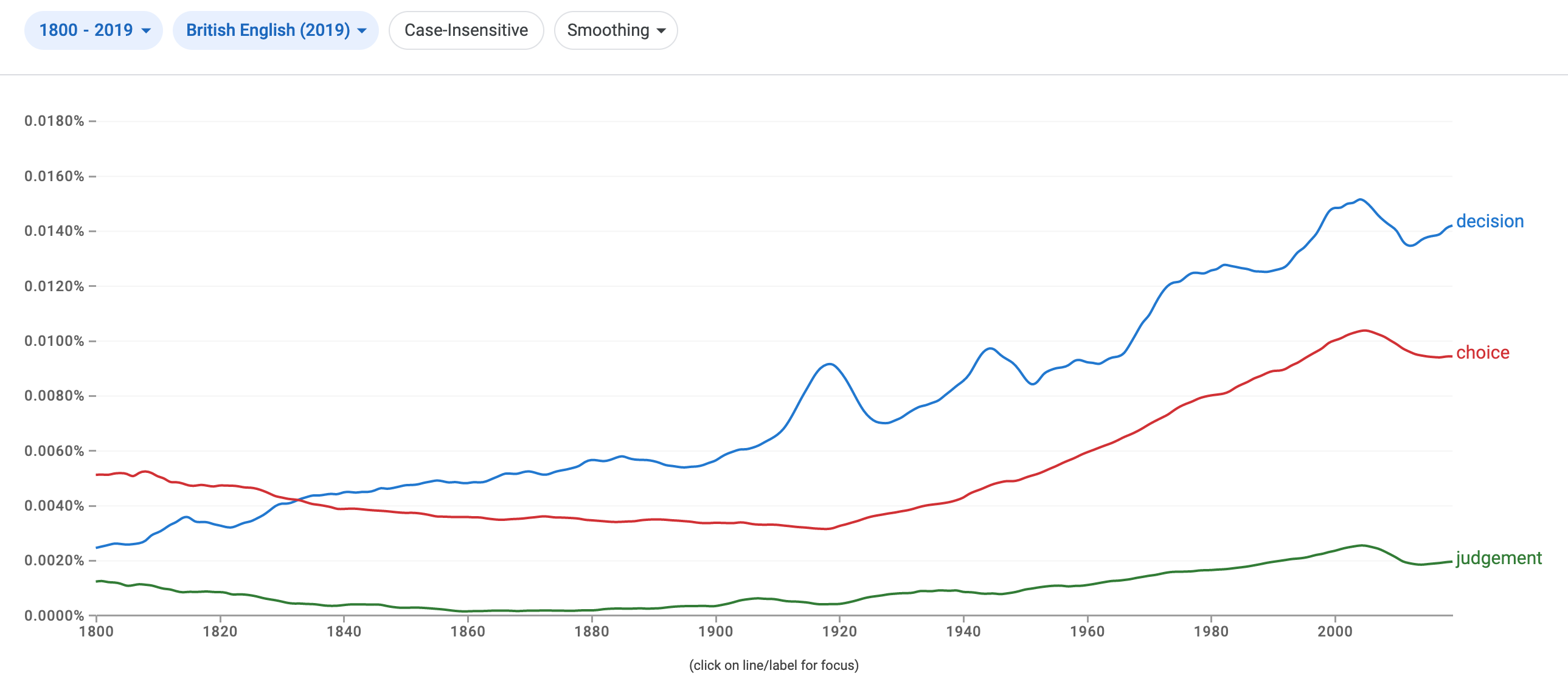
Usage of the three words by British since 1800
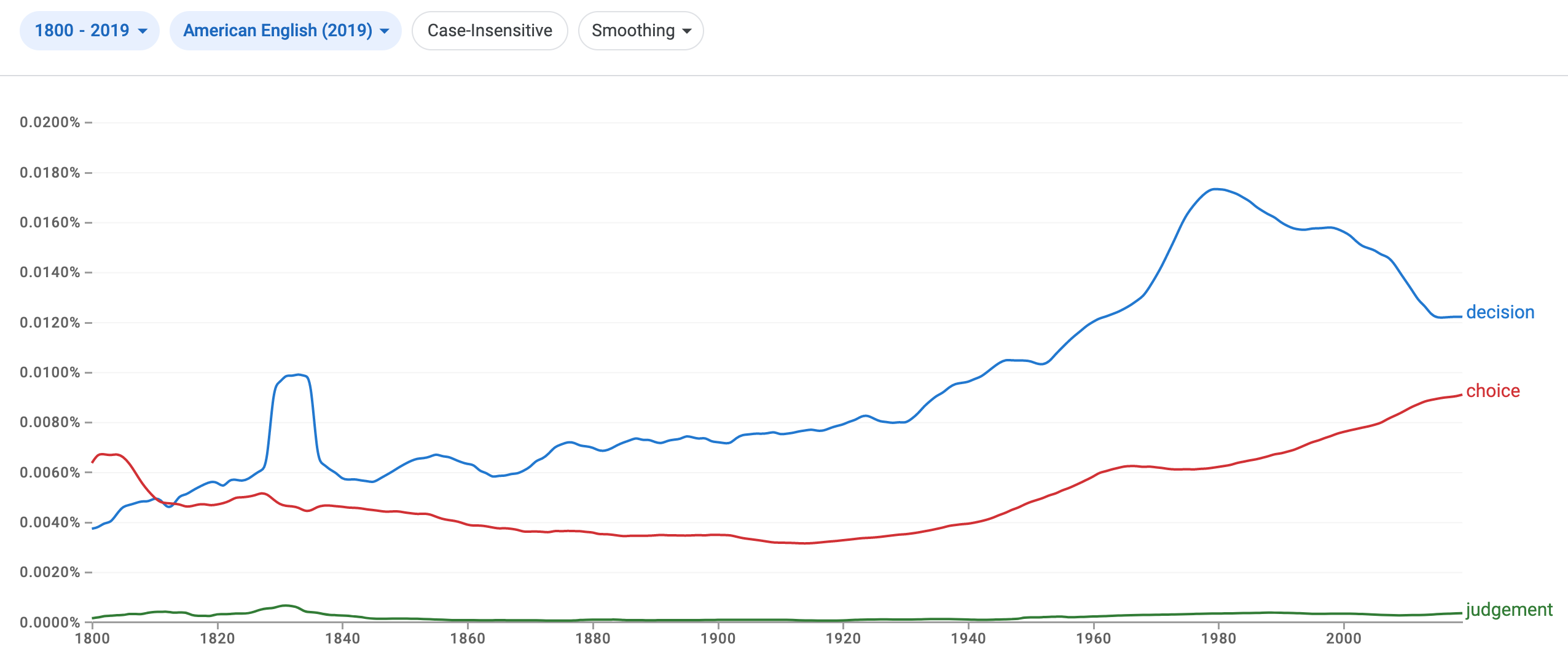
Usage of the three words by Americans since 1800
It seems that taking or making decisions were equally popular among the Brits until the 1930s when making them started to gain clear ground. While in America taking decisions was nearly moribund until the 1940s. Worth noting is the shear increase in the number of times decisions were taken or made is not reflected in how much the use of "decision" increased. Perhaps it's a cultural change in which the reasons for a decision must now more often be justified. This appears as increases in the frequency of making choices and judgements as well, although before 1920 we were making more choices than decisions.
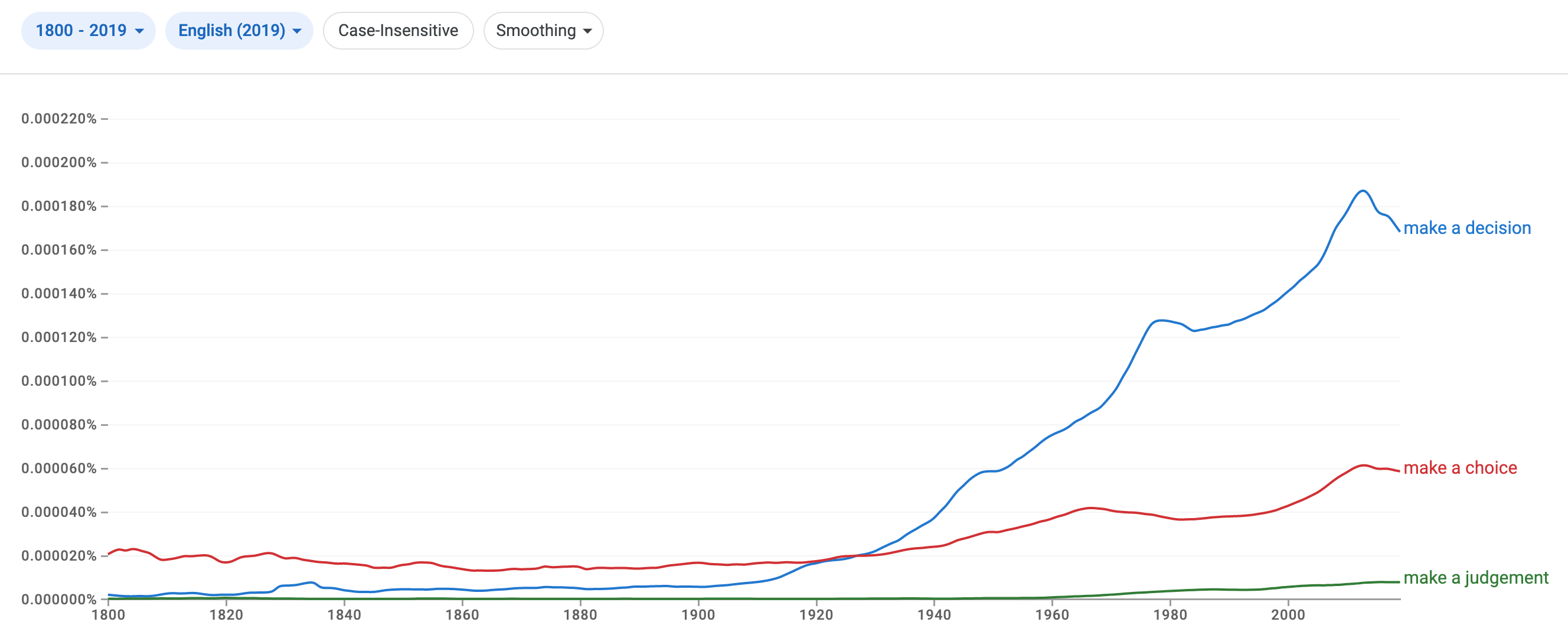
Usage of the three phrases in English since 1800
As in so many situations in life I learn the most when I am wrong. And in a thing so fluid as language it's oft to happen that my mother tongue, learned four decades ago, has changed in usage by those who came after me. Interesting then that this phrase, "take a decision", has fallen in use by the British from a third of the time to less than 10% of the time during my lifetime. If I had been born of the other side of the pond I might regard it's disappearance as something to morn, er, mourn. I'll leave that spelling mistake in there and maybe it a few decades time it won't be. Who knows?
